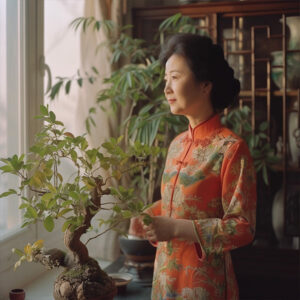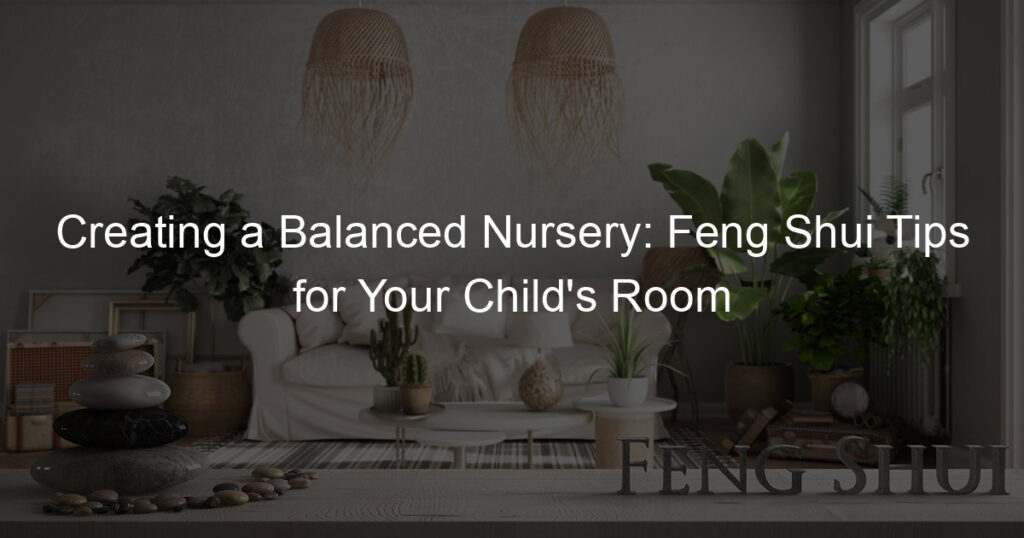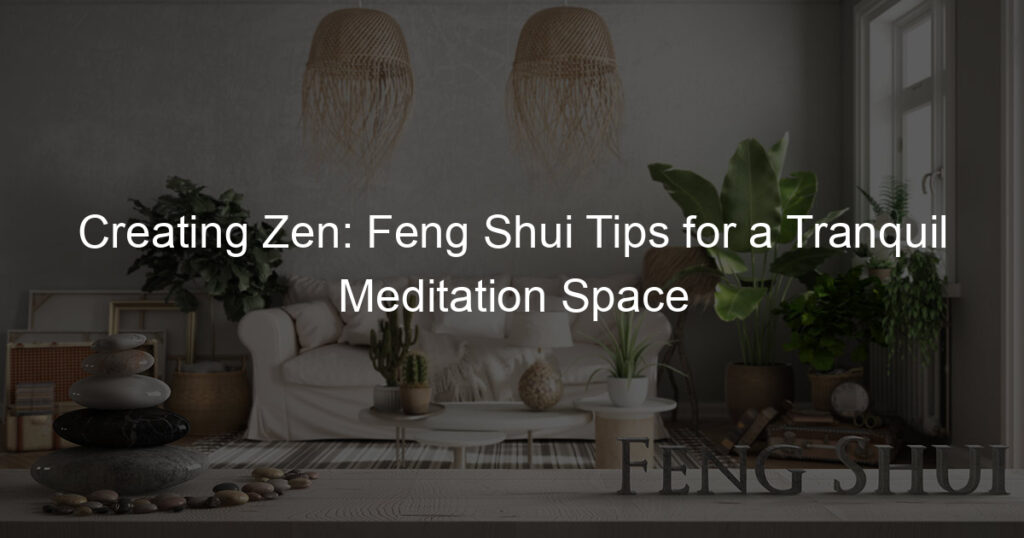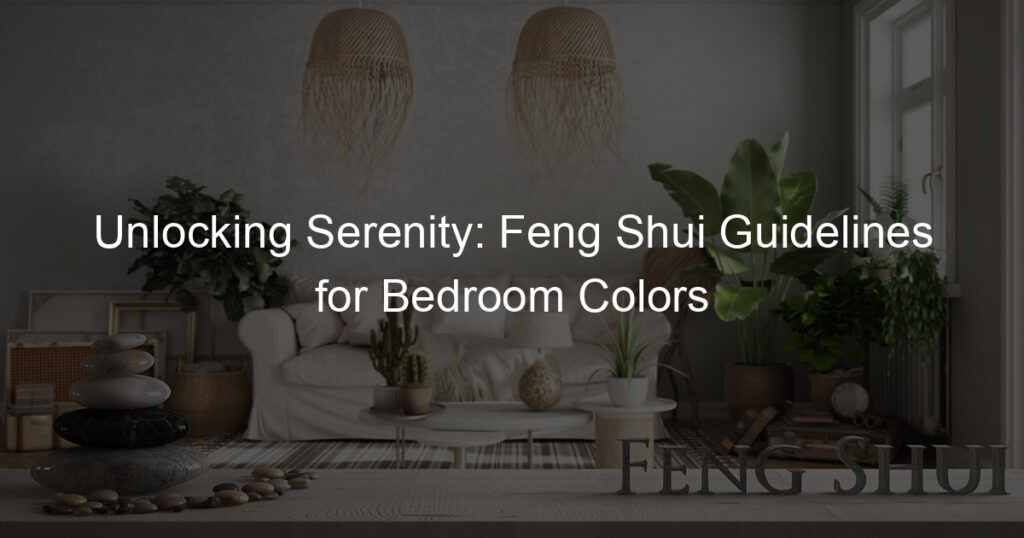
Introduction to Feng Shui for Small Spaces
Living in a small space doesn’t mean you can’t enjoy the benefits of Feng Shui. This ancient Chinese practice is all about harmonizing your environment to improve your life. Let’s dive into the world of Feng Shui and see how it can transform small apartments into havens of peace and prosperity.
- Understanding the concept of Feng Shui
Feng Shui, which translates to ‘Wind Water’, is a 3,000-year-old philosophy from China. It’s based on the idea that our surroundings can influence our well-being. The goal of Feng Shui is to balance the energies in a given space to assure health and good fortune for the people inhabiting it.
Think of Feng Shui as a tool to optimize the flow of energy, or ‘Chi’, in your home. It’s like acupuncture for your living space. By arranging your furniture and decor in a certain way, you can create a positive flow of energy that brings harmony and happiness.
- Importance of Feng Shui in small apartments
Small apartments can often feel cramped and chaotic, but Feng Shui can help turn that around. By applying Feng Shui principles, you can make your small apartment feel more spacious, welcoming, and balanced.
One of the key benefits of Feng Shui in small apartments is the ability to maximize space. With the right arrangement and organization, even the tiniest apartment can feel larger and more comfortable. Plus, a well-balanced home can boost your mood, improve your sleep, and even attract good luck and prosperity.
So, whether you’re living in a studio apartment or a compact one-bedroom, Feng Shui can help you make the most of your space. Stay tuned as we delve deeper into the key principles of apartment Feng Shui, practical techniques you can apply, common mistakes to avoid, and inspiring case studies of Feng Shui transformations.
Key Principles of Apartment Feng Shui
Understanding the key principles of Feng Shui can help you create a harmonious living space in your apartment. These principles are based on ancient wisdom and aim to balance the energies in your home. Let’s delve into three fundamental principles of Feng Shui: Chi, the Five Elements theory, and the Yin and Yang balance.
- Chi and its relevance in Feng Shui
- The Five Elements theory in Feng Shui
- Yin and Yang balance in Feng Shui
Chi, pronounced as ‘chee’, is a vital concept in Feng Shui. It is the energy that connects people with their surroundings. In Feng Shui, the goal is to have a smooth and balanced flow of Chi in your apartment. This energy flow can be influenced by the arrangement and choice of furniture, colors, and even the direction of your apartment. A well-balanced Chi brings prosperity, good health, and positive vibes.
The Five Elements theory is another essential principle in Feng Shui. It refers to the five elements of nature – Wood, Fire, Earth, Metal, and Water. Each element represents different types of energy and can influence various aspects of our lives. For instance, the Wood element symbolizes growth and creativity, while the Metal element represents clarity and precision. By understanding these elements and their interactions, you can create a balanced and harmonious environment in your apartment.
Yin and Yang represent the dual forces of the universe. Yin is the passive, soft, and feminine energy, while Yang is the active, hard, and masculine energy. In Feng Shui, a balance between Yin and Yang energies is crucial for creating a peaceful and harmonious apartment. This balance can be achieved by using a mix of light and dark colors, soft and hard materials, and by maintaining a balance between open and closed spaces in your apartment.
In conclusion, understanding and applying these key principles of Feng Shui can help you create a harmonious and positive living space in your apartment. Remember, the goal is not to achieve perfection, but to create an environment that supports and nourishes you.
Feng Shui Techniques for Apartments
In this section, we will delve into specific techniques that can help you harmonize your apartment using Feng Shui principles. We will start with the living room, a space that often serves as the heart of a home.
Harmonizing your Living Room
The living room is a crucial area in your apartment. It’s where you entertain guests, relax with your family, and sometimes, even work. Therefore, it’s essential to ensure that this space radiates positive energy and promotes harmony. Here are two key techniques to achieve this:
- Optimizing furniture arrangement for Feng Shui harmony
- Choosing the right colors for Feng Shui balance
The arrangement of your furniture can significantly impact the flow of energy in your living room. According to Feng Shui principles, the sofa should be placed against a solid wall, preferably facing the door. This position offers a sense of security and control. The coffee table should be in the center, with other furniture items arranged around it, promoting a circular flow of energy. Avoid blocking pathways with furniture as it can obstruct the free flow of Chi (energy).
Colors play a vital role in Feng Shui as they represent different elements and can influence our mood and energy. For a harmonious living room, consider using earth tones like beige, cream, and light yellow. These colors promote stability and calmness. To add some vibrancy, you can incorporate small elements of fire colors like red, orange, and pink. These colors stimulate conversation and activity. Remember, balance is key in Feng Shui, so avoid using too much of one color.
By implementing these Feng Shui techniques, you can transform your living room into a space that not only looks good but also feels inviting and harmonious. Remember, the goal of Feng Shui is to create a balanced and positive environment, so feel free to adapt these principles to suit your personal style and needs.
Feng Shui for your Bedroom
Creating a peaceful and harmonious bedroom environment is essential for a good night’s sleep. Feng Shui, an ancient Chinese practice, can help you achieve this. Let’s explore how you can apply Feng Shui principles in your bedroom, focusing on bed positioning and decluttering.
- Positioning your bed for optimal Feng Shui
The position of your bed plays a significant role in Feng Shui. The ideal placement is called the ‘commanding position.’ This means your bed should be placed diagonally opposite the door, allowing you to see the entrance without being directly in line with it.
This placement is believed to provide a sense of security and control over your space. It’s also important to have a solid wall behind your bed for support and to avoid placing your bed under a window, which can lead to disrupted sleep due to energy flow.
| Bed Positioning Tips |
|---|
| Place your bed diagonally opposite the door |
| Have a solid wall behind your bed |
| Avoid placing your bed under a window |
- Importance of decluttering in Feng Shui
Clutter is a big no-no in Feng Shui as it disrupts the flow of positive energy, or ‘chi.’ A clutter-free bedroom is not only aesthetically pleasing but also promotes relaxation and tranquility.
Start by removing items that do not belong in the bedroom, such as work-related materials or exercise equipment. Keep your under-bed area clear as well, as Feng Shui considers this space important for energy circulation. Regularly clean and organize your bedroom to maintain a positive and harmonious environment.
| Decluttering Tips |
|---|
| Remove items that do not belong in the bedroom |
| Keep the under-bed area clear |
| Regularly clean and organize your bedroom |
By positioning your bed correctly and keeping your bedroom clutter-free, you can create a serene and balanced space that promotes restful sleep and positive energy. Remember, Feng Shui is all about creating harmony and balance in your living space.
Feng Shui in the Kitchen
The kitchen is a vital part of any home, and it’s no different when it comes to Feng Shui. It symbolizes nourishment and health. Therefore, it’s essential to maintain a harmonious and balanced energy flow in this area. Let’s explore how we can achieve this.
- Organizing your kitchen for Feng Shui harmony
When it comes to organizing your kitchen, the first thing to consider is the placement of your stove, refrigerator, and sink. According to Feng Shui principles, these three should form a triangle for optimal energy flow. The stove, representing fire, should not be directly opposite the sink, representing water, as these two elements clash.
Another critical aspect is decluttering. A clutter-free kitchen allows chi, or energy, to flow freely and positively. Remember, less is more in Feng Shui. Keep your countertops as clear as possible and store utensils and appliances in cabinets and drawers.
- Choosing the right kitchenware for Feng Shui balance
Choosing the right kitchenware also plays a significant role in maintaining Feng Shui balance. Opt for items made from natural materials like wood, stone, or metal. These materials help to balance the five elements of Feng Shui – wood, fire, earth, metal, and water.
For instance, a wooden cutting board or a stone countertop can represent the earth element, while metal pots and pans can symbolize the metal element. Also, the colors of your kitchenware matter. Warm colors like red, yellow, and orange can stimulate appetite and bring warmth, while cool colors like blue and green can bring a sense of calm and peace.
Remember, the key to Feng Shui is balance. So, try to maintain a balance of colors and elements in your kitchenware.
By following these tips, you can create a kitchen that not only looks good but also promotes positive energy and harmony according to Feng Shui principles.
Common Mistakes in Apartment Feng Shui
While applying Feng Shui principles to your apartment can create a harmonious living space, it’s easy to make mistakes that can disrupt the flow of positive energy. Let’s explore some of the most common errors people make when trying to Feng Shui their apartments.
- Ignoring the Entrance in Feng Shui
- Overlooking the Importance of Natural Light in Feng Shui
The entrance to your apartment is more than just a door. In Feng Shui, it’s considered the mouth of the home, where energy enters. Ignoring the entrance is a common mistake that can lead to a stagnant energy flow. It’s crucial to keep this area clean, uncluttered, and inviting. A well-placed mirror, a vibrant rug, or a beautiful piece of art can help attract positive energy into your home.
Natural light is a vital element in Feng Shui. It brings life, warmth, and energy into your living space. However, many people overlook its importance and rely too heavily on artificial lighting. To maximize the benefits of natural light, keep your windows clean and free from obstructions. Use light, airy curtains that allow sunlight to filter in. If your apartment lacks natural light, consider using mirrors to reflect and amplify the light you do have.
By avoiding these common mistakes, you can create a more balanced and harmonious living space. Remember, the goal of Feng Shui is not just to make your apartment look good, but also to improve the flow of positive energy and create a sense of peace and well-being.
Case Studies: Feng Shui Transformations
In this section, we will delve into real-life examples of how Feng Shui can transform small spaces. Let’s start with a studio apartment.
Case Study 1: Transforming a Studio Apartment
Studio apartments can be challenging due to their limited space. However, with the right Feng Shui techniques, even the smallest of spaces can become harmonious and inviting.
-
Before and After Feng Shui Layout
Before the Feng Shui transformation, the studio apartment was cluttered, with furniture placed haphazardly. The bed was directly in line with the door, a major Feng Shui no-no, and the kitchen area was cramped and uninviting.
After applying Feng Shui principles, the apartment was transformed. The bed was moved to a more auspicious location, not in direct line with the door, and a screen was added for privacy. The kitchen area was decluttered, and plants were added to improve the flow of positive energy. The result was a more spacious, harmonious living space.
-
Key Takeaways from the Transformation
The transformation of this studio apartment highlights several key Feng Shui principles:
- Decluttering: Removing unnecessary items can drastically improve the flow of energy in a space.
- Proper Furniture Placement: The position of key pieces of furniture, like the bed, can have a significant impact on the energy of a room.
- Use of Plants: Plants can help improve the flow of positive energy and create a more inviting space.
As we can see from this case study, even a small studio apartment can be transformed into a harmonious living space with the right Feng Shui techniques.
Case Study 2: Harmonizing a One-Bedroom Apartment
Let’s dive into our second case study, where we harmonized a one-bedroom apartment using the principles of Feng Shui.
-
Before and After Feng Shui Layout
Before we began, the apartment seemed cluttered and lacked a sense of flow. The living room was filled with unnecessary items, and the bedroom was arranged in a way that blocked natural light.
After applying Feng Shui principles, we saw a significant transformation. We decluttered the living room, creating a more open and inviting space. In the bedroom, we rearranged the furniture to allow natural light to fill the room. The result was a harmonious and balanced apartment that promoted positive energy and well-being.
Area Before After Living Room Cluttered, lacked flow Open, inviting, balanced Bedroom Blocked natural light Allows natural light, promotes well-being -
Key Takeaways from the Transformation
This case study reinforces the importance of decluttering and the strategic placement of furniture in promoting positive energy. Here are the key takeaways:
- Decluttering is essential: Removing unnecessary items can create a more open and balanced space.
- Natural light is crucial: Proper furniture arrangement can enhance the flow of natural light, promoting well-being and positivity.
- Feng Shui works: The transformation of this one-bedroom apartment shows the power of Feng Shui in creating a harmonious living space.
Conclusion: Embrace Feng Shui for a Harmonious Small Apartment
As we conclude our journey through the principles and techniques of Feng Shui for small apartments, it’s clear that this ancient practice can bring harmony, balance, and positivity into our living spaces. Let’s recap the key insights we’ve learned and encourage you to embrace Feng Shui in your small apartment.
- Recap of apartment Feng Shui tips
- Encouragement to embrace Feng Shui for small apartment harmony
We’ve explored the importance of decluttering, the role of the five elements, and the significance of the Bagua map. We’ve learned how to position furniture for optimal energy flow, the importance of natural light and fresh air, and the power of color in Feng Shui. We’ve also discussed common mistakes to avoid, such as blocking the entryway, placing the bed in line with the door, and creating sharp angles within the home.
Now that you’re equipped with these Feng Shui tips, we encourage you to apply them in your small apartment. Remember, the goal of Feng Shui is not just to create a visually pleasing space, but to harmonize your environment with your own energy. By embracing Feng Shui, you’re taking a step towards a more balanced, peaceful, and harmonious life.
“The home should be the treasure chest of living.” – Le Corbusier. With Feng Shui, your small apartment can truly become a treasure chest of harmonious living. Embrace the principles of Feng Shui and transform your apartment into a sanctuary of positive energy.














